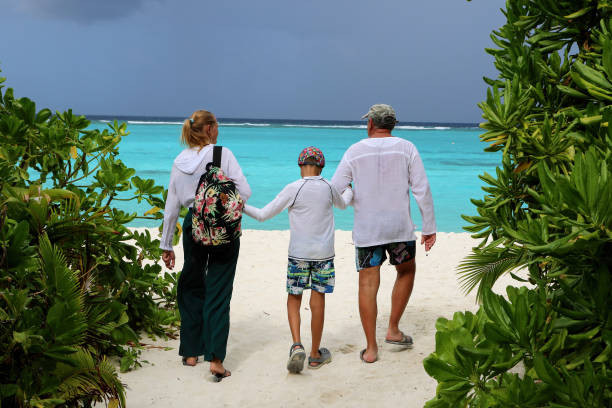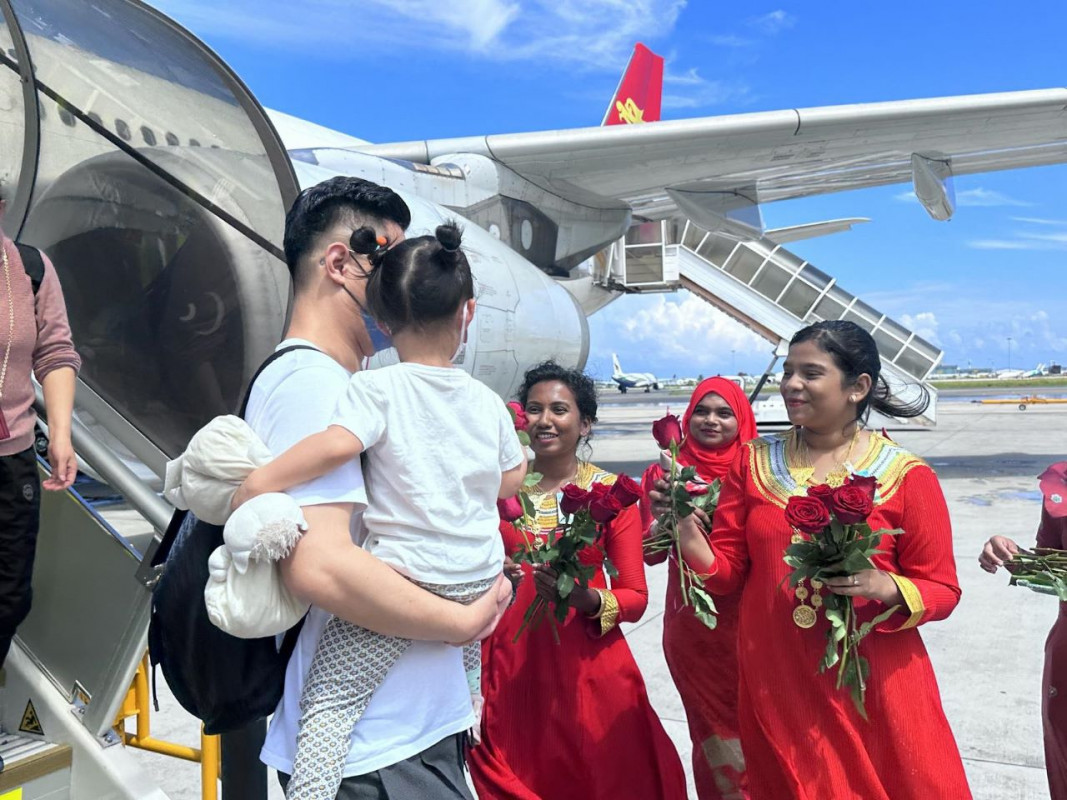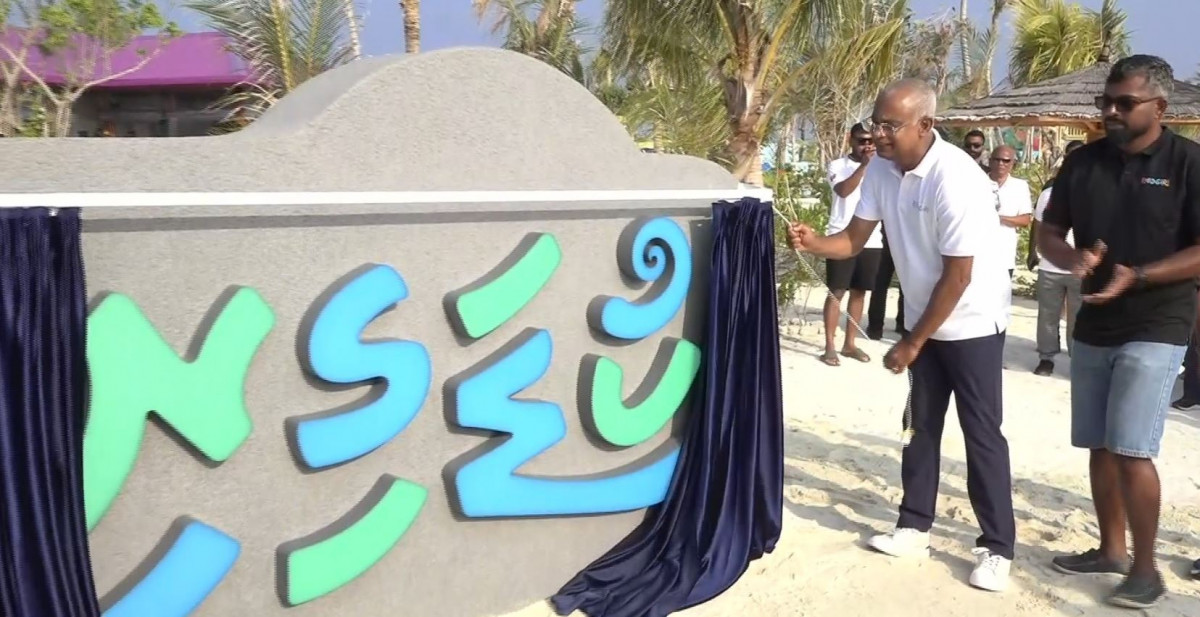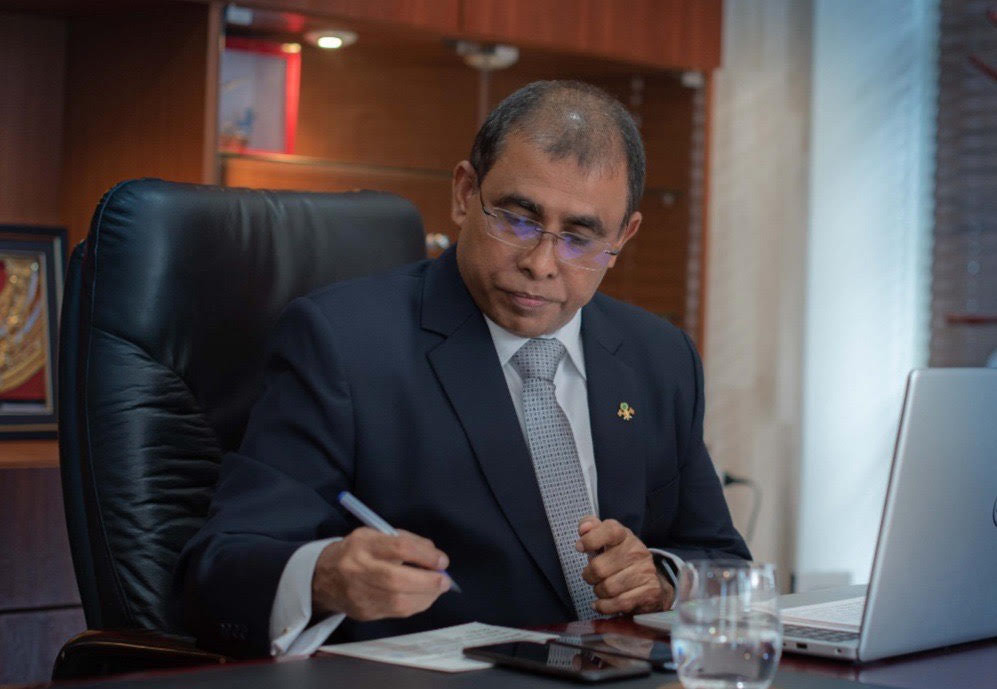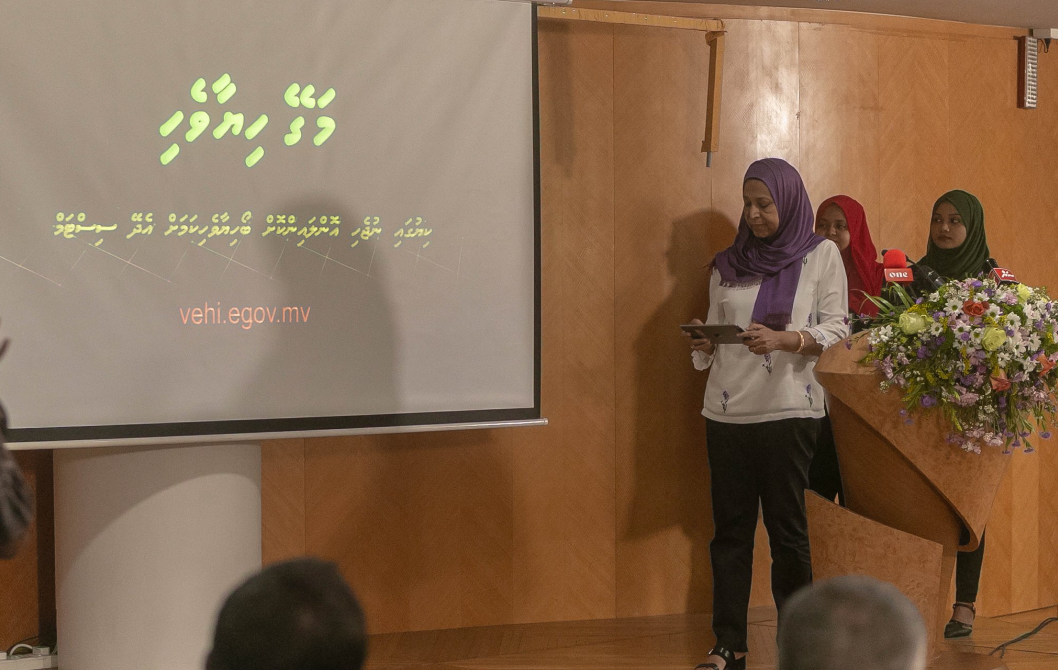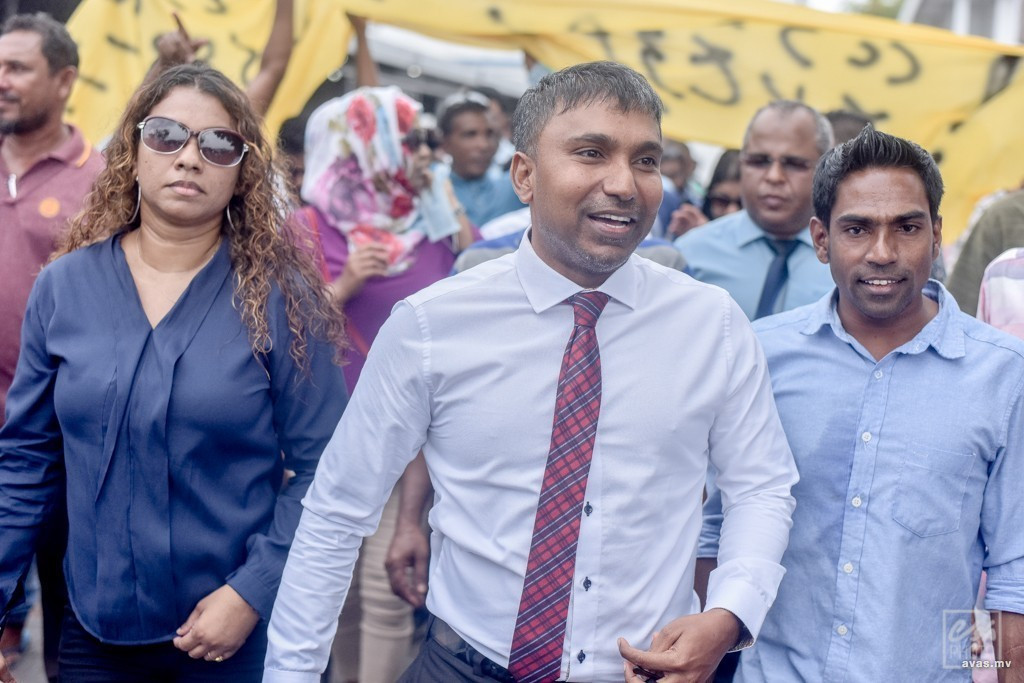Climate crisis is the biggest challenge facing this generation: President Solih
Solih urged world leaders to ensure multilateral banks and international financial institutions are in the position to provide low-cost capital

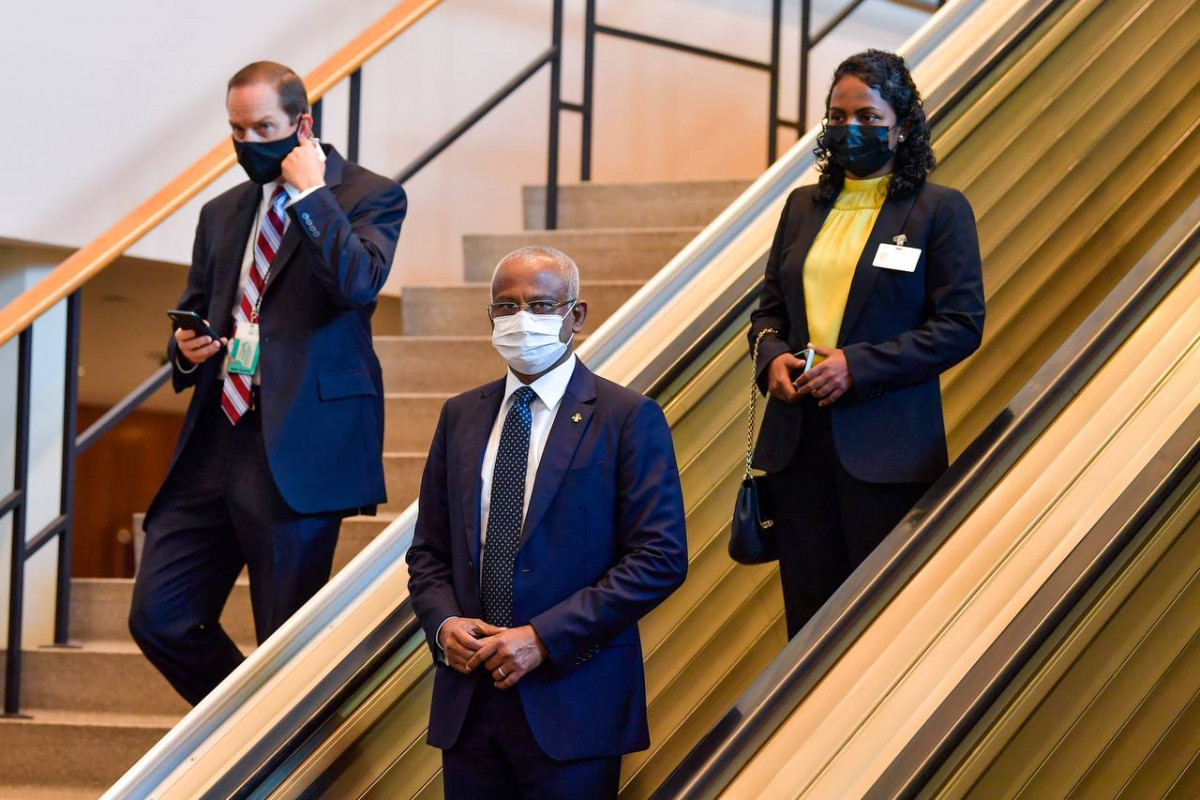
Solih urged world leaders to ensure multilateral banks and international financial institutions are in the position to provide low-cost capital
The climate crisis, is the biggest challenge facing the current generation, says President Ibrahim Mohamed Solih.
He made this remark at the Climate Moment meeting on the sidelines of the 76th session of the United Nations General Assembly. The Climate Moment meeting was convened by the United Nations Secretary-General Antonio Guterres in collaboration with the Prime Minister of the United Kingdom Boris Johnson.
The Maldivian leader had the pleasure of being among the select group of state leaders invited to the exclusive event, hosted at the UN Headquarters.
Stressing that there has been a chance to achieve the goal of maintaining a temperature of 1.5 degrees Celsius since the small island states first began advocating for it, the president noted that the goal has been overwhelmed with the temperature having already reached 1.1 degrees Celsius.
President Solih said that the globe faces threats of more global warming already latched onto the atmosphere.
Further, he went on to urge the developed nations globally, to take steps ensured to meet the 1.5 degrees Celsius goal valued in the Paris Agreement.
Announcing Maldives’ commitment to remain steadfast in efforts to reduce emissions by a quarter by 2030, President Solih stressed that the country continues to remain hopeful of reaching its net zero target by 2030.
A hopeful president noted that this is an achievable goal, with the support and help from the international community.
Further, he shed light on the UNSG Guterres’s call for at least half of climate finance to flow to adaptation and highlighted that capital for adaptation projects is difficult to secure and such projects are costly and do not offer direct returns financially.
Shedding light on the tactics to enhance the capacity of international financial institutions, multilateral development banks and the multilateral system to provide funding, the Maldivian president encouraged developed countries to pledge to the Green Climate Fund at a level that paves way for vulnerable countries. He also noted that this ensures there are funds for adaptation plans and suggested that action by the G20 on fossil fuel subsidies could be a strong signal heading into COP26.
The president went on to urge world leaders to ensure multilateral banks and international financial institutions are in the position to provide low-cost capital that is “sufficient, predictable and accessible” for smaller nations to implement their climate plans.
